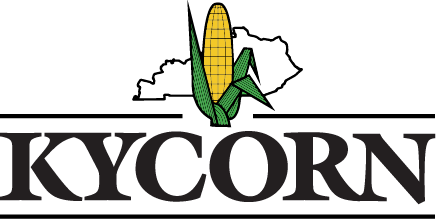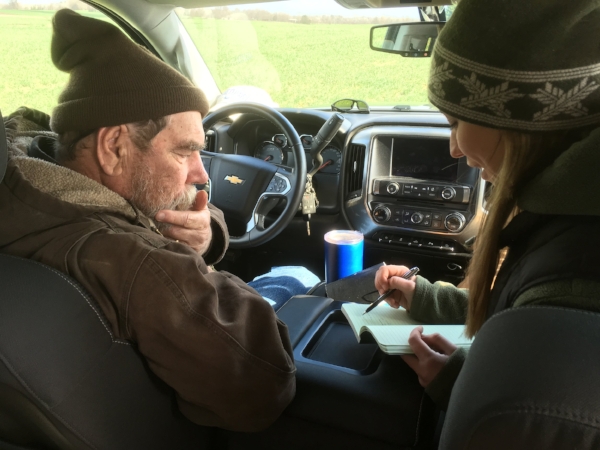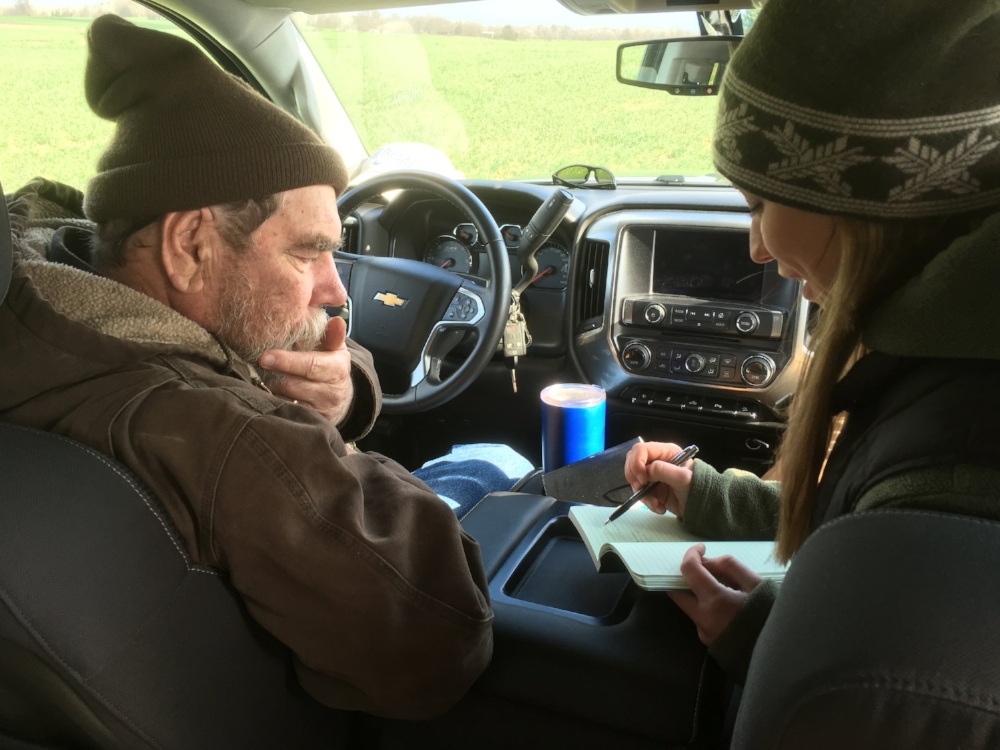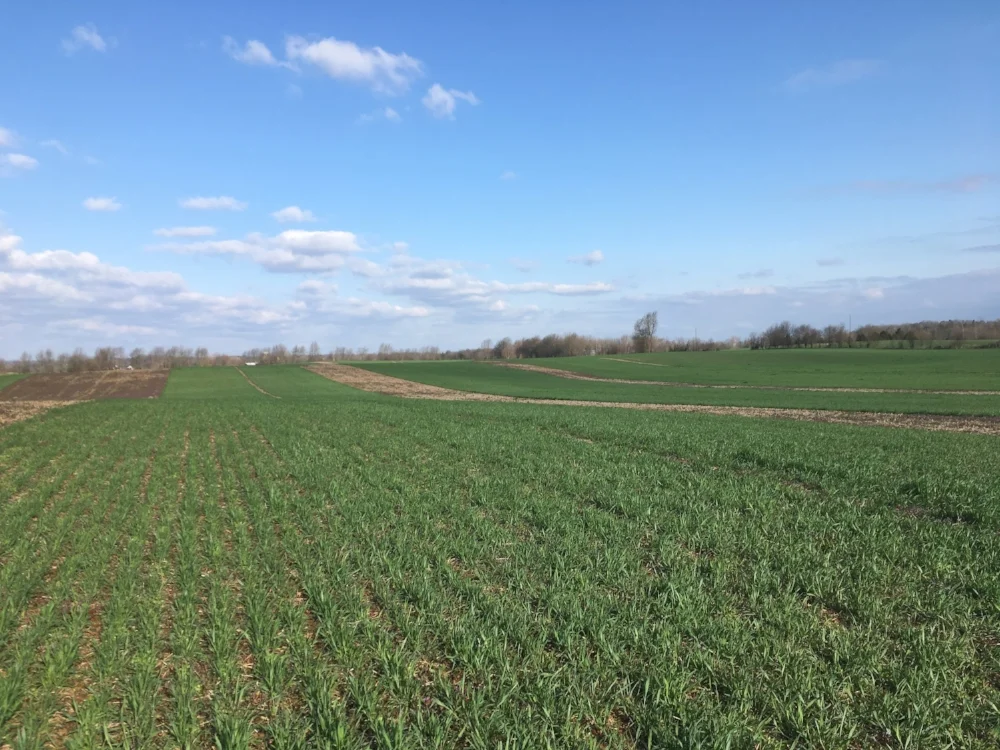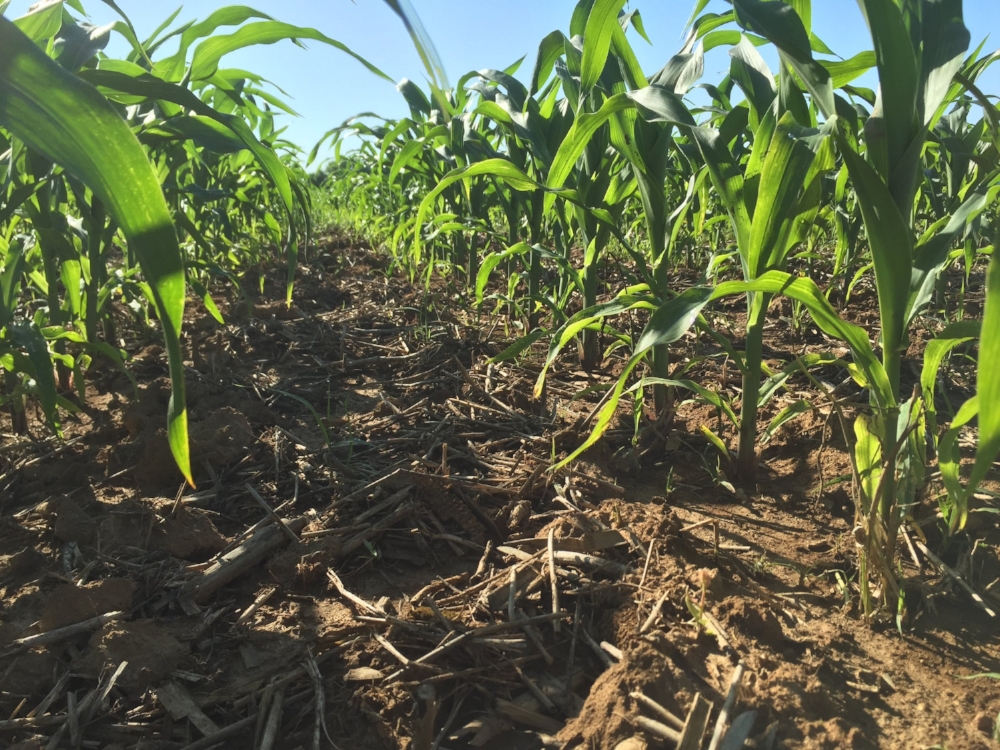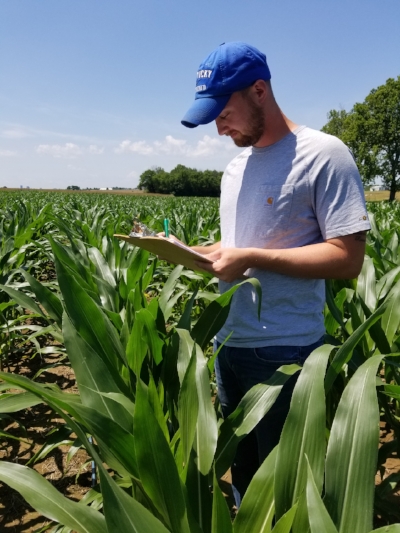data-animation-override>
“Some of our most impactful field research over the years occurs when a farmer asks a question and we figure out how to conduct the trials.”
Hardin Co. farmer Richard Preston and UK soil scientist Dr. Hanna Poffenbarger discussing ideas for the study.
Farmers in Kentucky have been improving soils while increasing crop yields for nearly six decades. No-tillage and reduced tillage systems are methods to conserve soil, improve soil structure, and increase water retention. Many farmers experimented with cover crops during the first twenty years of no-tillage. Many researchers at the University of Kentucky conducted cover crop research as well. The primary cover crop then was wheat and in the 1980’s farmers, crop consultants and university scientists learned how to grow wheat for a profitable grain crop, not just as a cover crop.
Rye cover crop test plot on Preston farm in Hardin Co.
Now, many farmers in Kentucky are experimenting with rye as a cover crop. The University of Kentucky and KyCorn are partnering to investigate corn establishment methods in rye cover crops. The university researchers are asking if a cover crop rye ties up nitrogen intended for the corn. If it does how much? Will in-furrow fungicides and starter fertilizer overcome disease risks of planting corn into rye residue? Growers and crop consultants helped develop these questions based on what they were observing in their own fields and farms.
“Some of our most impactful field research over the years occurs when a farmer asks a question and we figure out how to conduct the trials,” said Dr. Chad Lee, Extension Professor and Director of the Grain and Forage Center of Excellence.
A major portion of the research funding from KyCorn is for a graduate student. Dan Quinn is working towards a Ph.D. on this project. The entire team is working on answers for Kentucky farmers. Quinn earned his Masters of Science at Michigan State University where he worked on nitrogen rates for corn and wheat. He brings an excellent set of knowledge, experience and skills to tackle this question in Kentucky. It is also a full circle moment. A Michigan commodity organization funded Dr. Lee to conduct his Ph.D. research.
KyCorn also funded research led by Dr. Josh McGrath on identifying the proper nitrogen rates for corn in Kentucky. Higher yields, newer hybrids, optical sensors, and other models for nitrogen rate recommendations are all factors in this extensive study. McGrath is working with Ellis Farms in Shelby County and Richard Preston in Hardin County. Richard planted cover crops in a randomized design last fall making his field an excellent location for on-farm research. That location allows McGrath to examine nitrogen rates following rye cover crop, rye and clover cover crop and no cover. Across both Shelby Co. and Hardin Co., McGrath is testing about 70 unique nitrogen rates and timings across about 26 acres of corn.
Ph.D. student Dan Quinn evaluates corn response to nitrogen following the rye cover crop.
These studies bring in other researchers to the project as well. A subset of those 70 nitrogen rates overlap with Quinn’s work and he is overlaying some observations at the on-farm sites. One of the newest soil scientists, Dr. Hanna Poffenbarger, will be investigating changes to the soil from the cover crops. She will try to learn if these changes influence soil health. Dr. Edwin Ritchey has helped with some of the field measurements. Later, Dr. Jordan Shockley will identify which nitrogen rates from these studies are most economical for growers. This type of teamwork at the University of Kentucky exemplifies what we expect from the Grain and Forage Center of Excellence.
Partnerships of KyCorn with producers, crop consultants, and the University of Kentucky are vital to the long-term viability and health of corn production in the Commonwealth.
